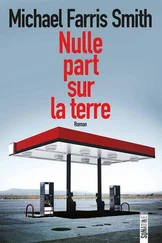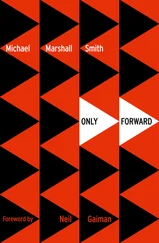Berthea ran an eye down the page she was reading. ‘He doesn’t say.’
‘Well, I bet he did,’ said Terence. ‘They were good correspondents in those days, always writing letters to one another, full of interesting observations on the world. You wait until you get to the bit where he’s turned down for the Navy during the war and goes to teach in Bristol.’
And now, of course, she would never get to that part, since she was abandoning the book altogether. How narcissistic these people were, she thought as she went to answer the doorbell. How special they thought themselves to be. Whereas in reality they led rather uneventful lives - much like everybody else. Nothing really remarkable happened to most of us, she thought; we grew up, we got a job, we fell in love - if we were lucky - and then we went into decline and eventually disappeared. And at the end of the day, what did we achieve? Well, perhaps it was an achievement just to get through life without any conspicuous disasters. If we did that, then we were pulling off at least something.
It was Lennie Marchbanks at the door. She had met him once or twice before and rather liked him; mechanics struck her as being such easy, agreeable people. And, she noticed, as a psychotherapist, one never had a mechanic for a patient. Why was that? Were they invariably balanced people, free of the neuroses that afflicted non-mechanically-minded others?
Lennie smiled at Berthea. She noticed that he had false teeth and that they were not a very natural colour, being rather too white; ill-fitting, too.
‘Is your brother in?’ asked Lennie.
Berthea went to fetch Terence, who had been taking an afternoon nap in his room upstairs.
‘That electricity has done me no good at all,’ he said as he sat up and rubbed his eyes. ‘It’s got all my ions going in the wrong direction. I can tell, you know. I need to be re-polarised.’
The mention of Lennie Marchbanks seemed to cheer him up though, and he was very talkative as they made their way downstairs. ‘I suspect he’s found me that new car,’ said Terence. ‘If he has, then we could go for a spin later on. That is, if you’d like to. I don’t believe in forcing people to do things they don’t want to, you know. There’s far too much coercion in the world today. They should just leave us to get on with our lives rather than telling us to do all sorts of things. Have you seen those signs, Berthy? Those signs on the road? They have big messages in lights telling you to put on your safety belt and do this and do that and not do the other thing. It’s really very, very cross-making. These government people sit there in their offices and think up things they can tell us to do. Did you see that they actually issued a code of practice on how to look after your cat? What a cheek.’
‘Yes, yes,’ said Berthea.
‘And there’s another thing . . .’ Terence continued. But he did not finish because they had arrived in the front hall, where Lennie was waiting.
‘Afternoon, Mr Moongrove,’ said the mechanic. ‘I hope that you’re fully recovered.’
Terence nodded. ‘Thank you, Mr Marchbanks. I expect I shall be fine - in due course.’ He looked past the mechanic through the open front door. ‘You haven’t . . .’
‘Yes, I have. Your new car. Or, rather, one that I reckon you might like. You can take a look at it and see what you think.’
Terence rubbed his hands together gleefully. ‘One of those small cars we talked about?’
Lennie nodded. ‘The very one.’ He glanced anxiously at Berthea as he spoke.
‘It’s all right,’ Terence reassured him. ‘My sister knows about this car and gives it her blessing.’
77. Terence Moongrove, Porsche Owner
Berthea had no real interest in cars and left Terence and Lennie to get on with their transaction while she returned to the morning room. There could be no question of taking up the autobiography again, so she picked up the newspaper and began to tackle the crossword. 1 across: He conquers all? A nubile tram. This old clue required only a moment’s thought. Tamburlaine! Of course. And 1 down? This for two and two for this (3 letters). Well really! Who did they imagine would be doing these crosswords - children?
Outside, Lennie led Terence to the garage, where he had parked the Porsche.
‘I took you at your word,’ the mechanic said. ‘At first I thought you were joking. But then I realised that you really did want one of these jobs. So I had a word with our mutual friend. Not a fancy price. Good motor. Nice and clean.’
‘Our mutual friend?’
Lennie chuckled. ‘Yes. Monty Bismarck. As it happens, he was ready for a new model and he’ll be happy for you to take this one off his hands - through me, of course.’
Terence stood before the Porsche. He reached down and touched the bodywork, gently, with a single finger, as if to confirm the car’s existence.
‘So this is the car I’ve seen Monty Bismarck driving,’ he said. ‘The very car. Isn’t it lovely, Mr Marchbanks?’
‘It’s a nice motor all right, Mr Moongrove. I wouldn’t have thought of you as driving one of these, you know, but where there’s life there’s hope, I suppose . . .’
Terence laughed. ‘I could cut a bit of a figure in this, couldn’t I?’ He moved round to the side of the car. ‘And I see there are two seats. One for me and one for my sister.’
Lennie reached forward to open the driver’s door. ‘Exactly. And you might even find that other women would fancy getting into that passenger seat.’ He turned and winked at Terence.
Terence looked surprised. ‘What do you mean, Mr Marchbanks? Two women wouldn’t fit in there. Berthy’s quite large, and I don’t think she’d want another woman to sit on her lap.’
The mechanic looked at him conspiratorially. ‘Truth is, Mr Moongrove, women like these cars. A Porsche does something for a woman. I was thinking of . . . well, other women. You know. Hey?’
Terence frowned. ‘We’ll see.’
‘Monty Bismarck told me . . .’ Lennie checked himself. ‘Well, maybe not. Perhaps I should show you what’s what and then we can take a little test drive down the road.’
‘Oh, I’d like that,’ said Terence appreciatively, stooping to get into the low-slung car. ‘My goodness, this is not a car for very tall people. Oops! My poor old head. Do you think they build these cars for short men, Mr Marchbanks?’
Lennie thought about this. Unintentionally, Terence had displayed a real insight into the psychology of car manufacture. Who drove these very flashy, sporty cars? Short men. Yes, Terence was right. It took a tall man to drive a Morris Traveller.
Lennie showed him the instruments. ‘That’s a rev counter,’ he said. ‘You don’t want the engine to strain too much. So you keep it low.’
Terence peered at the dial. ‘I see. And this thing here?’
‘The speedometer. The one on your Morris went up to 80, I think. Which was a bit optimistic. I think that nobody ever got more than 72 miles per hour out of a Morris.’
Terence pointed. ‘This one goes up to 160, I see, Mr Marchbanks. That’s jolly fast. Do you think we might . . . ?’
‘No,’ said the mechanic firmly. ‘Listen, Mr Moongrove, I’m only going to let you have this car if you promise me - and I mean promise - that you won’t go above 50 in it. That’s it. You see that mark there? That’s 50. No more than that, please.’
Terence looked momentarily annoyed, but then nodded his assent. ‘All right. But what’s the point of being able to go 160 miles per hour if you aren’t allowed to?’
‘That’s for Germans,’ said Lennie. ‘These cars are made in Germany, you see, and they’re allowed to do whatever speed they like on their autobahns.’
Читать дальше










